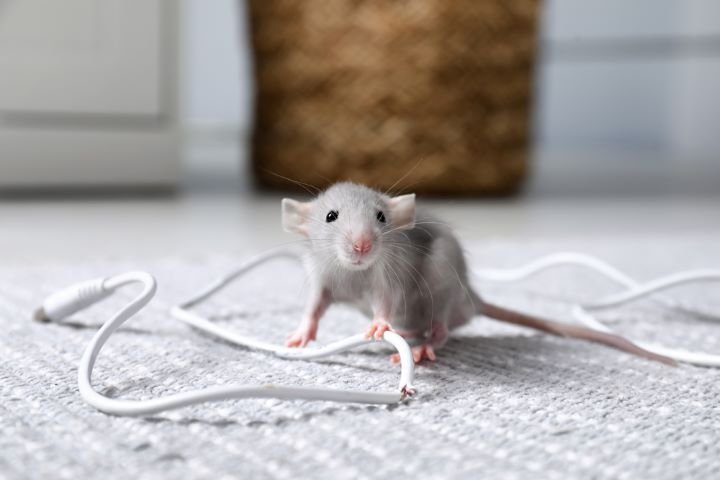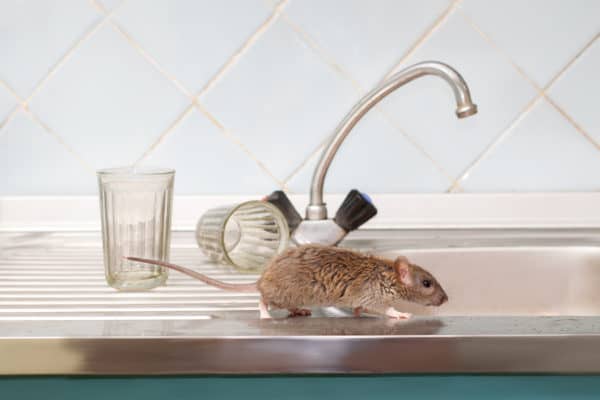Dealing with mice in your home can be more than just a nuisance; these tiny invaders can carry diseases and cause significant damage. This guide will delve into how to prevent mice in your home efficiently, ensuring your living space remains safe and comfortable.
Mice are notorious for their ability to squeeze through small openings, making any house a potential target. Therefore, understanding their behavior and what attracts them into your home is critical. By gaining insight into these aspects, you can enact effective measures to block their entry and make your home an inhospitable environment for them.

Step 1: Identify Common Entry Points
One of the first steps in knowing how to prevent mice in your home is identifying and sealing potential entry points. Mice can enter through gaps as small as a quarter of an inch, so even the tiniest cracks can serve as a welcome mat for these pests. Be sure to inspect areas around doors and windows, as well as potential openings in the foundation or exterior walls.
Seal Cracks and Holes
Using caulk, steel wool, or other sturdy materials to seal these gaps is paramount. Regular maintenance and checks around your property are also necessary to ensure that any new vulnerabilities are quickly addressed. For a more thorough understanding of the effectiveness of such steps, check out this [comprehensive guide on pest prevention](https://www.epa.gov/safepestcontrol/dos-and-donts-pest-control).
Step 2: Eliminate Food Sources
Once access points are secured, eliminating easy-to-access food sources will deter mice from settling in. Mice are opportunistic feeders, and your home can easily provide a buffet if you're not careful. Storing food in airtight containers and regularly cleaning up crumbs and spills can suffice in making your kitchen less appealing to these uninvited guests.
Proper Waste Management
Trash can also attract mice, so ensure your garbage cans have tight-fitting lids and consider installing rodent-proof compost bins. To better understand the role of proper waste management, refer to these [helpful pest prevention tips](https://horizonpestcontrol.com/top-10-diy-pest-prevention-hacks-every-homeowner-should-know/).
Step 3: Maintain a Tidy Exterior
While focusing on the interior of your home is crucial, don't neglect the exterior. Mice often make their way indoors from gardens or other outdoor areas. Maintaining a clean yard will make your property less attractive to rodents looking for new nesting sites or food sources.
Trim Nearby Vegetation
Cut back trees, shrubs, and overgrown plants close to your home to discourage mice from using branches as bridges to enter your house. Keep firewood and other potential shelters well away from the walls of your home. If you're interested in more exterior maintenance tips, read this article on [keeping various pests away](https://trapx.io/blogs/news/how-to-keep-cockroaches-away).
Final Thoughts: Stay Vigilant and Consistent
Preventing mice isnt about a single action but rather an ongoing effort combining various strategies. Regular monitoring and updating of preventive measures are vital for long-term success. Remember, consistency is key!
If you'd like more information on preventive measures for other pests, take a look at [bed bug prevention strategies](https://trapx.io/blogs/news/bed-bug-prevention) and [how to stop mosquitoes in the house](https://trapx.io/blogs/news/how-to-stop-mosquitoes-in-the-house).

FAQs
Why are mice attracted to my home?
Mice seek warmth, food, and shelter, which your home readily provides if the correct conditions are met.
How often should I check for mouse entry points?
It's advisable to check for entry points seasonally, especially before winter when mice are more likely to seek warmth indoors.
Are there natural remedies for mice prevention?
Natural remedies such as peppermint oil, ultrasonic repellents, and owl feathers can sometimes deter mice, but they are less reliable than consistent physical barriers and sanitation practices.
This article contains affiliate links. We may earn a commission at no extra cost to you.
